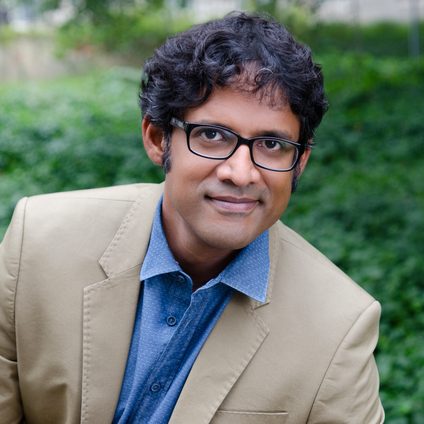Happiness expert Raj Raghunathan on the marketing and psychology of happiness
Raj: I have always been interested in the issue of happiness, right from childhood. I think it’s because I was brought up in a family in which “enlightenment” or “oneness with God” was valued as the ultimate goal and purpose of human existence. It may also have been because I have always been introspective and for someone introspective, it seems quite natural to wonder about what makes one happy.
Raj: To me, it seems like that happiness is or ought to be the ultimate goal of human existence. Most people seem to agree with the statement, “ultimately, everything I do is so that I can lead a happier, more meaningful life,” and this is true for me as well.
Raj: This is a complex topic. In brief, marketing—which I define as the art and science of facilitating and mutually beneficial exchange between two (or more) parties—can and should aim to promote societal happiness and well-being. Often, however, people tend to focus on the much more self-centered objective of promoting their own material wealth. I don’t blame any one person or company for this; I think we have all believed for a long time that if everyone acts in self-interested ways, society as a whole will benefit.
I think the time has come for us to market the true determinants of happiness to people.
DailyHap: What’s the most surprising thing you’ve found in your research?
Raj: There are many things that surprise me, but I guess one of the most surprising things is, what I refer to as the Fundamental Happiness Paradox: the idea that, although people say happiness is their most important goal, they routinely makes decisions that erodes into their happiness. For example, we routinely let money, power, fame, need for control, need to be loved, need to control, need to solve things with our mind, etc. come in the way of our happiness. To me, it seems mind-boggling at one level that people would do this, but at the same time, it also seems quite understandable that they do it.
Raj: I think there are various reactions. Most people find it mildly amusing that someone could so seriously study happiness. Others think that my life must be fun. Still others refer to me as “Professor Happiness” [ed. note: we’re guilty!] suggesting that since I study happiness, I must be happy! A few feel—even if they won’t explicitly accept it–a sense that someone studying happiness can’t be a real scientist.
For the most part, however, people are very interested in knowing what the recipe for happiness is. Again, it just goes to show how important happiness is to people.
Stay tuned for Part 2 of this interview, where Professor Happiness reveals the exact recipe for how to be happy!

